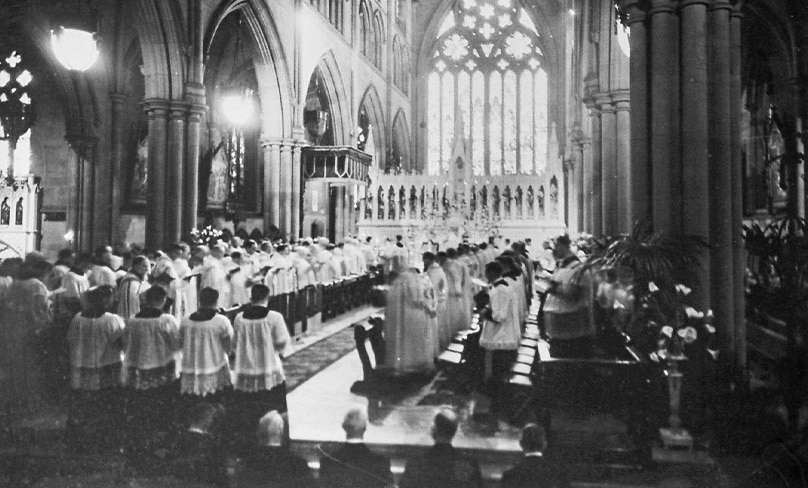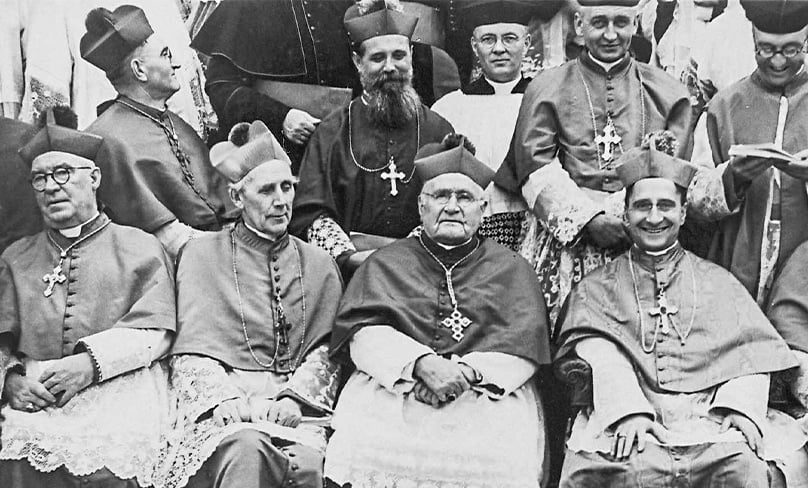
The fourth Plenary Council of Australia was held in 1937, mostly at the initiative of the Apostolic Nuncio Archbishop Giovanni Panico. Its main aim was to bring the church’s governance into line with the 1917 Code of Canon Law.
The fourth Plenary was attended by 31 archbishops and bishops of Australia and New Zealand, along with Archbishop Panico and 53 other clergy – no laity attended.
Aside from its 685 decrees, which were passed with few amendments, the fourth Plenary published a joint pastoral letter which celebrated the progress of the Church and warned against the dangers of social upheaval in the 1930s.
“The Catholic who does not live really and sincerely according to the faith he professes will not long be master of himself in these days of strife and persecution,” the letter said.
“The Catholic Church was left to face this menace practically single-handed, the pastoral letter said, and young men were urged to ‘be on their guard against the crafty methods by which this movement is being propagated’.”
“Atheistic Communism” was a particular focus of the letter, which said it “aims at overthrow of religion and refuses to human life any sacred or spiritual character”.
The Catholic Church was left to face this menace practically single-handed, the pastoral letter said, and young men were urged to “be on their guard against the crafty methods by which this movement is being propagated”.
The letter also applauded Catholic education and expressed appreciation for priests, brothers and nuns in teaching orders, while also mourning the prejudicial denial of state funds to Catholic schooling.

The letter also raises issues still relevant to the Church in Australia today.
The social teaching of the Church was recommended as a remedy to unemployment, social unrest and the reluctance of youth to settle “on the land”.
It called for a wage sufficient to support a family on a single income, and for governments to “not only guarantee such a wage but make provision against unemployment and increasing family burdens”.
“Catholic newspapers were also encouraged, with clergy asked to urge ‘a Catholic newspaper in every Catholic home’.”
The falling birthrate and contraception were also protested, “strong drink” discouraged, and membership in Catholic associations recommended (especially where they encouraged marriage).
Catholic newspapers were also encouraged, with clergy asked to urge “a Catholic newspaper in every Catholic home”.
A fine suggestion, which we regret did not make it into the Framework for Motions of the fifth Plenary.
If newspapers still exist by time of the sixth plenary, perhaps this omission can be remedied then.
